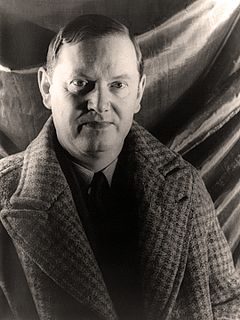
Arthur Evelyn St. John Waugh was an English writer of novels, biographies, and travel books; he was also a prolific journalist and book reviewer. His most famous works include the early satires Decline and Fall (1928) and A Handful of Dust (1934), the novel Brideshead Revisited (1945), and the Second World War trilogy Sword of Honour (1952–1961). He is recognised as one of the great prose stylists of the English language in the 20th century.

Brideshead Revisited, The Sacred & Profane Memories of Captain Charles Ryder is a novel by English writer Evelyn Waugh, first published in 1945. It follows, from the 1920s to the early 1940s, the life and romances of the protagonist Charles Ryder, most especially his friendship with the Flytes, a family of wealthy English Catholics who live in a palatial mansion called Brideshead Castle. Ryder has relationships with two of the Flytes: Sebastian and Julia. The novel explores themes including nostalgia for the age of English aristocracy and Catholicism. A faithful and well-received television adaptation of the novel was produced in an 11-part miniseries by Granada Television in 1981.

A Brandy Alexander is a brandy-based dessert cocktail consisting of cognac, crème de cacao, and cream, that became popular during the early 20th century. It is a variation of an earlier, gin-based cocktail called simply an Alexander. The cocktail known as Alexander today may contain gin or brandy. Ice cream can be added for a "frozen Brandy Alexander".

William Lygon, 7th Earl Beauchamp,, styled Viscount Elmley until 1891, was a British Liberal politician. He was Governor of New South Wales between 1899 and 1901, a member of the Liberal administrations of Sir Henry Campbell-Bannerman and H. H. Asquith between 1905 and 1915, and leader of the Liberal Party in the House of Lords between 1924 and 1931. When political enemies threatened to make public his homosexuality he resigned from office to go into exile. Lord Beauchamp is often assumed to be the model for the character Lord Marchmain in Evelyn Waugh's novel Brideshead Revisited.

Scoop is a 1938 novel by the English writer Evelyn Waugh. It is a satire of sensationalist journalism and foreign correspondents.

Matthew Goode is an English actor. He made his screen debut in 2002 with ABC's TV film feature Confessions of an Ugly Stepsister. His breakthrough role was in the romantic comedy Chasing Liberty (2004), for which he received a nomination at Teen Choice Awards for Choice Breakout Movie Star – Male. He then appeared in a string of supporting roles in films like Woody Allen's Match Point (2005), the German-British romantic comedy Imagine Me and You (2006), and the period drama Copying Beethoven (2006). He won praise for his performance as Charles Ryder in Julian Jarrold's adaptation of Evelyn Waugh's Brideshead Revisited (2008), and as Ozymandias in the American neo-noir superhero film Watchmen (2009), based on the comics by Alan Moore and Dave Gibbons. He then starred in romantic comedy Leap Year (2010) and Australian drama Burning Man (2011), the latter earning him a nomination for Best Actor at the Film Critics Circle of Australia Awards.

The Bullingdon Club is a private all-male dining club for Oxford University students. It is known for its wealthy members, grand banquets, and bad behaviour, including vandalism of restaurants and students' rooms. The club is known to select its members not only on the grounds of wealth and willingness to partake but also by means of education. Former pupils of public schools such as Eton, Harrow, Stowe School, Radley, Oundle, Shrewsbury, Sedbergh, Rugby, Westminster, Charterhouse, St. Paul's, and Winchester form the bulk of its membership.

The Newman Society: Oxford University Catholic Society is Oxford University's oldest Roman Catholic organisation, a student society named as a tribute to Cardinal Newman, who agreed to lend his name to a group formed seventeen years before the English hierarchy formally permitted Catholics to attend the university. The society acquired its current form and title following the merger in 2012 of the pre-existing Newman Society and Oxford University's Catholic Society. It exists, according to its constitution, to: 'work in conjunction with the Chaplains to support and encourage Catholic students in their Christian vocation by promoting their personal, intellectual and spiritual development, social interaction, and apostolic witness within the broader context of their university experience', and has served as the model for Catholic student societies throughout the English-speaking world.

Madresfield Court is a country house in Malvern, Worcestershire, England. The home of the Lygon family for nearly six centuries, it has never been sold and has passed only by inheritance since the 12th century; a line of unbroken family ownership reputedly exceeded in length in England only by homes owned by the British Royal Family. The present building is largely a Victorian reconstruction, although the origins of the present house are from the 16th century, and the site has been occupied since Anglo-Saxon times. The novelist Evelyn Waugh was a frequent visitor to the house and based the family of Marchmain, who are central to his novel Brideshead Revisited, on the Lygons. Surrounded by a moat, the Court is a Grade I listed building.
Archibald Ormsby-Gore, better known as Archie, was the teddy-bear of English poet laureate John Betjeman. Together with a toy elephant known as Jumbo, he was a lifelong companion of Betjeman's.

Pickled walnuts are a traditional English pickle, made from walnuts. They are considered a very good accompaniment for a plate of cold turkey or ham, or a blue cheese. There’s a reference to ‘a mutton chop and a pickled walnut’ in The Pickwick Papers by Charles Dickens and a mention in Evelyn Waugh’s Brideshead Revisited.

Paula Byrne, Lady Bate,, is a British author and biographer.

Brideshead Revisited is a 1981 British television serial starring Jeremy Irons and Anthony Andrews. It was produced by Granada Television for broadcast by the ITV network. Most of the serial was directed by Charles Sturridge, with certain sequences directed by Michael Lindsay-Hogg, who handled the initial phases of the production.

Brideshead Revisited is a 2008 British drama film directed by Julian Jarrold. The screenplay by Jeremy Brock and Andrew Davies is based on the 1945 novel of the same name by Evelyn Waugh, which previously had been adapted in 1981 as the television serial Brideshead Revisited.
The University of Oxford is the setting for numerous works of fiction. Quickly becoming part of the cultural imagination, Oxford was mentioned in fiction as early as 1400 when Chaucer in his Canterbury Tales referred to a "Clerk [student] of Oxenford":
"For him was levere have at his beddes heed/ Twenty bookes, clad in blak or reed,/ of Aristotle and his philosophie/ Than robes riche, or fithele, or gay sautrie".

The Temple at Thatch was an unpublished novel by the British author Evelyn Waugh, his first adult attempt at full-length fiction. He began writing it in 1924 at the end of his final year as an undergraduate at Hertford College, Oxford, and continued to work on it intermittently in the following 12 months. After his friend Harold Acton commented unfavourably on the draft in June 1925, Waugh burned the manuscript. In a fit of despondency from this and other personal disappointments he began a suicide attempt before experiencing what he termed "a sharp return to good sense".
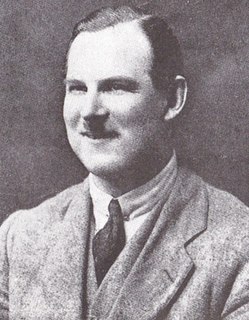
Charles Robert Mowbray Fraser Cruttwell was a British historian and academic who served as dean and later principal of Hertford College, Oxford. His field of expertise was modern European history, his most notable work being A History of the Great War, 1914–18. He is mainly remembered, however, for the vendetta pursued against him by the novelist Evelyn Waugh, in which Waugh showed his distaste for his former tutor by repeatedly using the name "Cruttwell" in his early novels and stories to depict a sequence of unsavoury or ridiculous characters. The prolonged minor humiliation thus inflicted may have contributed to Cruttwell's eventual mental breakdown.
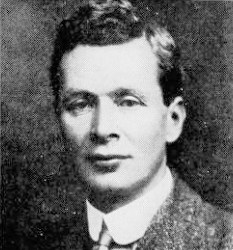
Francis Fortescue Urquhart (1868–1934) was an English academic, the first Roman Catholic to act as a tutorial fellow in the University of Oxford since the 16th century.
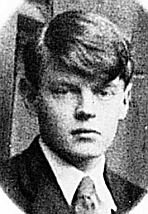
Alastair Hugh Graham was an honorary attaché in Athens and Cairo, an Oxford friend of Evelyn Waugh, and, according to Waugh's letters, one of his "romances". He is, together with Hugh Lygon, considered the main inspiration for Sebastian Flyte in Brideshead Revisited.
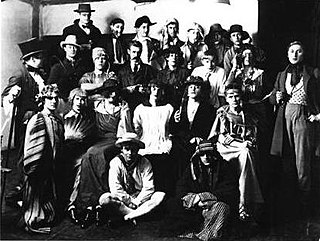
The Hypocrites' Club was one of the student clubs at Oxford University in England. Its motto in Greek, from an Olympian Ode by Pindar, was Water is best. This led to the members being called Hypocrites, due to the fact that beer, wine and spirits were the chosen drinks.


















